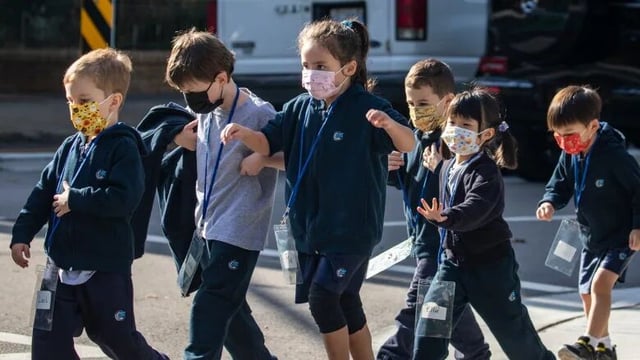BARDOSH: Canada, we still need a real COVID inquiry
Nearly four years after the government first imposed unprecedented COVID-19 policies, Canada still lacks a plan for how to evaluate their effectiveness, costs and consequences.


Recent efforts to promote a federal inquiry do little to diminish concerns that key scientific and policy questions — about lockdowns, school closures, masks, contact tracing and vaccine mandates — will go unanswered.
As I lay out in my report for the Macdonald-Laurier Institute, rather than seriously questioning the dominant COVID-19 policy approach, these efforts parrot a set of misguided axioms set on justifying and institutionalizing them for the future.
Canadians deserve better.
In a desperate failure to ‘follow the science,’ too many individuals in the mainstream establishment continue to frame efforts to question COVID-19 policies as ‘misinformation’ or ‘revisionism.’
This perspective, which for convenience I call Covidization, cherry-picks the evidence and ignores the totality of data. It also ignores other factors that can explain COVID-19 epidemiological trends: seasonality, innate immunity, voluntary risk reduction and herd immunity.
Provincial and federal governments are not required by law to evaluate the consequences of any emergency response, including their response to COVID-19. This leaves fundamental questions unanswered: did government policies cause more harm than good? What should we do next time?
It is time to move beyond the Covidization groupthink. Any thoughtful and objective COVID-19 evaluation should be evidence-based and take as a starting position the investigation of social harms created by government infection control policies.
This includes consequences on health and health services, such as an alarming mental health crisis, a rise in non-COVID excess mortality and a range of negative lifestyle changes.
Pandemic policies closed businesses and shifted employment patterns, while also dramatically increasing government spending, debt and inflation. What are the consequences and long-term legacy of these economic impacts? And, of course, economic consequences are likely to have had adverse effects on general well-being. It remains unclear how useful the vast government financial assistance programs really were.
The social fabric of Canada was also ruptured, with significant effects on domestic violence, child abuse, gender relations and social polarization. Pandemic policies impacted children and teenagers at crucial points in their education and psychosocial development and are predicted to have various long-term consequences.
Socio-economic groups were affected in different ways. A generational paradox emerged: the virus itself caused minimal mortality among the younger people who were most severely impacted by pandemic disruptions. More marginalized and vulnerable social groups experienced disproportionate socio-economic and mental health effects. And the elderly were often isolated and locked-up in care facilities.
The civic infrastructure of democratic accountability also eroded, with consequences for human rights, civil liberties and checks on executive power.
Debate was, for the most part, abandoned at our institutions of higher education. An artificial ‘consensus’ was manufactured by the mainstream media. Science itself was politicised and a profound failure occurred in multidisciplinary scientific policy advice. The advice offered to policymakers focused almost exclusively on a pathogen-centric perspective and disregarded the expertise of other relevant disciplines.
Population compliance was supported through unprecedented laws on protest, data privacy and media freedom largely upheld by the courts. Growing public distrust culminated in the 2022 Ottawa Freedom Convoy protest while the biases of the Rouleau Commission that upheld the use of the War Measures (Emergencies) Act revealed similar failures in government accountability.
And yet no major scientific and institutional effort has emerged to collate and analyse the full data on these societal harms and explore their implications for pandemic policy. Some efforts have been made — by the new conservative premier of Alberta, Danielle Smith and the National Citizen Inquiry, a grassroots independent movement — but more needs to be done.
The federal government can call for a national commission of inquiry at any time and set the scope and format. It is critical that an attitude of impartiality and with a willingness for self-criticism emerge. The data on COVID-19 policy harms need to be taken seriously.
It would be wise to establish an independent scientific review with sufficient support, expertise and neutrality outside government or those that had a direct hand in enacting the policies in question. Such an independent assessment could then inform the establishment of any future public inquiry.
About Kevin Bardosh

Kevin Bardosh is the Director of Collateral Global, a UK-based charity dedicated to researching the global impacts of Covid-19 policy responses and helping the world better balance societal trade-offs during future health emergencies. He has worked in more than 20 countries on infectious disease control programs (including Ebola and Zika), authored more than 50 peer-reviewed publications and edited two books. He is currently an Affiliate Assistant Professor in the School of Public Health, University of Washington USA and an Honorary Lecturer at the Edinburgh Medical School, University of Edinburgh UK.
Follow Kevin Bardosh on X (formerly Twitter) @KevinBardosh
Follow Collateral Global on Twitter @collateralglbl